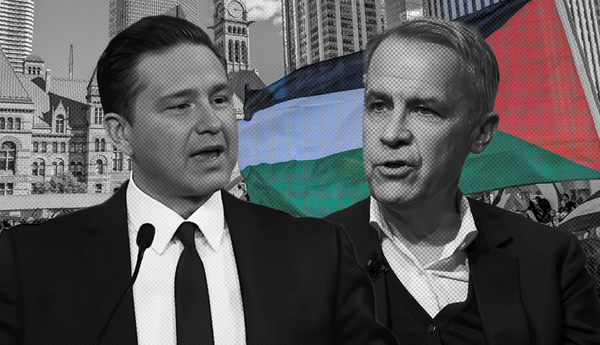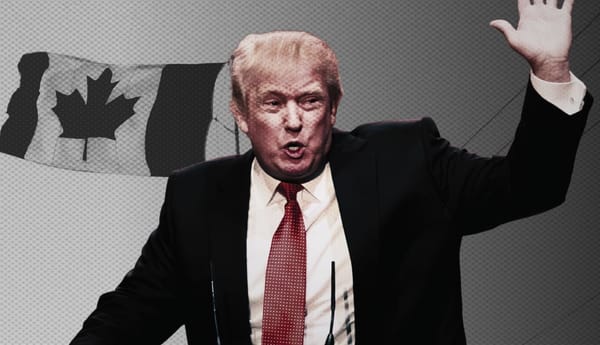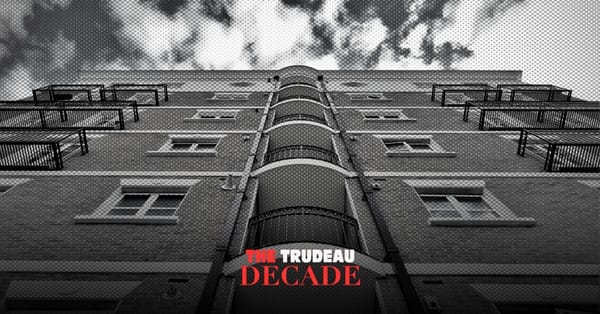It’s hard to believe, but it’s been five years since United States Senator Bernie Sanders’ ascension to the international stage as the lone challenger to the embodiment of establishment politics in the Democratic Primary.
Since then, we’ve seen the very machine he’d been raging against for decades beat him back using every dirty trick in the book, and then go on to lose the election to a game show host.
We’ve watched as Sanders has spent the years since Donald Trump became president opposing his agenda in the Senate while relentlessly promoting his own political vision to American audiences, even ones who may be naturally hostile to what he represents.
Even despite the absolute debacle that took place the night of the Iowa caucus, Sanders is still on the verge of shrugging off the duplicitous manoeuvrings of a rodent-like, bread price-fixing competitor and doing the unthinkable: overthrowing the once-mighty neoliberal status quo to secure the Democratic Party nomination and setting up a once-in-a-lifetime general election against the person who very well may be his political polar opposite — a comically corrupt, pretend-populist, real estate robber baron who is a physical manifestation of America’s pure, uncut id.
All of this comes against the backdrop of the looming threats of cataclysmic environmental and economic crisis.
You have to admit, it’s a pretty perfect story, one that just a decade or two ago might have seemed too on the nose even for a Hollywood fantasy. If, like me, you’ve been watching it play out from the north side of the border, you may also be wondering just when Canada’s Sanders is going to show up. Where is this hypothetical person and the accompanying social movement that makes them relevant?
Over the last few years we’ve seen the bottom fall out from the centre of politics internationally. Yet here in Canada the status quo remains, as a superficially liberal ruling party carries out the interests of the business class with a winning smile and a carefully stage-managed and focus-grouped PR facade.
There’s a political establishment in this country practically begging to be overthrown, from the double-dealing, coup-loving nepotism cases leading the government to the crypto-fascist, milk-drinking automatons across the aisle.
So, what’s the hold up, exactly?
One easy answer is that the increasingly grim social conditions in the U.S. are making a more progressive message appealing.
Despite Trump’s much-talked-about gold-plated economy delivering huge gains to people that wear tuxedos after 6 p.m. on weekdays, everyone else is struggling to navigate the Kafka-esque nightmare healthcare system, dealing with wages that have stagnated over the last few decades while cost of living has skyrocketed, in gig economy jobs that have disrupted meager worker protections out of existence, unable to afford a home or start a family, going into crushing debt to get an education, and all as a result of 40 years of a relentless neoliberal assault of privatization, deregulation, means-testing and tax cuts, which has lead to a rickety, declining empire now being run by a pack of Wall Street hostile takeover vultures picking the bones clean before the final, terminal collapse.
It’s a desperate time, and perhaps that’s why Americans are increasingly drawn to different measures in order to confront these immense and frightening challenges.
In Canada, we were somewhat insulated from the worst fallout of the financial crisis, and as such weren’t as devastated by austerity over the last decade as in the U.S., United Kingdom or elsewhere.
We still have the last vestiges of a functional social democracy, and since there’s not the same sense of desperation it’s more difficult to get people onboard with the idea that we need to drastically change our society, and thus create the social movements that can then propel a Sanders-like figure into the limelight.
Maybe that, and the ability to look down our noses at the ongoing tire-fire shitshow south of the border instills a sense of complacency in people who just don’t want to upset the apple cart too much.
It’s compelling logic, but not exactly accurate.
The volume may be turned down a notch or two, but we’re being affected by many of the same nagging economic problems as the U.S. We do have a brutal housing crisis. We’re looking at the same grim future of climate chaos. We’ve got multiple crises facing Indigenous communities. We just found out that the drinking water in many of our major cities is not actually drinkable.
We do, in fact, have plenty to be angry about, and there’s compelling research showing that this anger is a surprisingly strong motivating factor for many people in this country who are seeking out a radical realignment of the status quo.
After our most recent federal election, I spoke to Martin Lukacs, author of “The Trudeau Formula: Seduction and Betrayal in an Age of Discontent,” and was quite surprised to hear about some polling that had been done. Lukacs told me:
For the book, I was reading through a lot of the polling on this stuff. There was this poll on EKOS in 2014, where Frank Graves, the pollster at EKOS — I think he’s probably the smartest pollster in this country in terms of getting what people actually think — put this question to Canadians. He said, ‘Do you agree with this statement, that if wealth continues to concentrate at the very top and wages stagnate for everyone else, I would not be surprised to see the emergence of violent class conflicts.’ And do you know how many people agreed? Two out of three people in Canada. [It was actually 57 per cent.] So I think there’s a huge amount of anger and outrage about this hoarding elite that we have in this country that has made off with billions and funneled it into offshore tax havens.
Another poll Lukacs mentioned, from Ipsos, shows that “70 per cent of Canadians believe that the economy is rigged in the interests of the rich and powerful.” It turns out that people in this country actually are open to some fairly radical political and economic reforms, but this is simply not being reflected in our political system.
In other words, there very well may be a constituency out there for a Sanders-like figure. Someone just needs to pick up the torch and run.
Which brings us to the NDP. It’s ostensibly the one electoral vehicle we have available to deliver the kinds of drastic change people desire, yet party insiders still seem unwilling or unable to take yes for an answer.
Niki Ashton, Member of Parliament for Churchill—Keewatinook Aski, could clearly see which way the winds were blowing and tried to capture Sanders’ populist anger during her run for party leadership in 2017, but was out-organized by eventual winner Jagmeet Singh.
During the 2019 federal election, Singh actually did start using some of the fiery class-warfare rhetoric that Sanders and younger contemporaries such as Congresswoman Alexandria Ocasio-Cortez wield very effectively in both the real and online worlds, and lo and behold his popularity numbers surged, taking the NDP’s polling from doomsday levels to 20 per cent.
Singh, of course, ran into trouble in Quebec that prevented the party from gaining any real ground, and the NDP ended dropping from 44 seats in 2015 to 24.
Unfortunately, since the election, Singh has failed to keep up the relentless pressure and class-focused rhetoric, and has waffled on some important foreign policy positions, such as failing to unequivocally denounce Canada’s role in helping Trump attempt to overthrow the Venezuelan government.
It’s possible the party establishment is unwilling to go any farther than it already has. This is the NDP in its purest distillation, filled with a good many interesting and inspiring characters and ideas but completely inert as an institution, chained to a failed decades-old political consensus, and unwilling to unflinchingly adapt to a modern and drastically fraught political reality.
As Ocasio-Cortez said at a recent Iowa rally for Sanders’ presidential campaign: “It’s not that we can’t. It’s that we’re scared.” Sounds about right.
So, where does that leave us? The gap between what the public and political class want is a vacuum that will eventually be filled. The scary thing is that when our supposedly left-leaning political class refuses to accept this responsibility and start providing solutions to people that are justifiably angry and looking for radical change, it leaves open the possibility that a Trump-like demagogue will do so, directing that anger toward the already vulnerable and marginalized.
While there’s still a chance for Sanders to complete the promise of his political movement in the U.S., unless someone steps into his role here very soon, there’s no guarantee we’ll ever get a similar opportunity.
CORRECTION: This article has been updated to correct the spelling of Martin Lukacs. Passage regrets this error






